Cute and Funny Spanish Nicknames for All Occasions
Cute and Funny Spanish Nicknames
– For Friends, Boyfriends & Girlfriends!
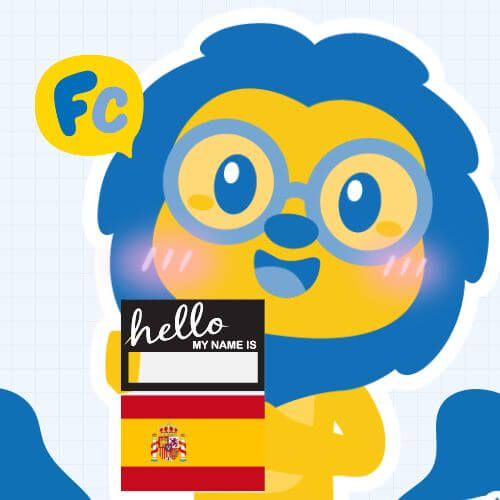
Nicknames or apodos in Spanish are colorful ways to refer to people in general, whether they be friends or foes.
💖 They’re also commonly used for love interests in Spanish, just like Mi amor (my love).
In the past, in Spain, nicknames were used for a myriad of purposes, like to refer to the town where one lived, their skill set or profession, physical characteristics, or simply as a form of name abbreviation.
And now back to the modern day, the use of nicknames in Spain is still very much alive and they are often used as terms of endearment or warm ways of addressing friends, family, and one’s love interest.
Cute and Funny Spanish Nicknames || Nicknames for that Special Someone
Cute and Funny Spanish Nicknames || Friend Zone Safe Nicknames
Cute and Funny Spanish Nicknames || FAQs
Nicknames for that Special Someone
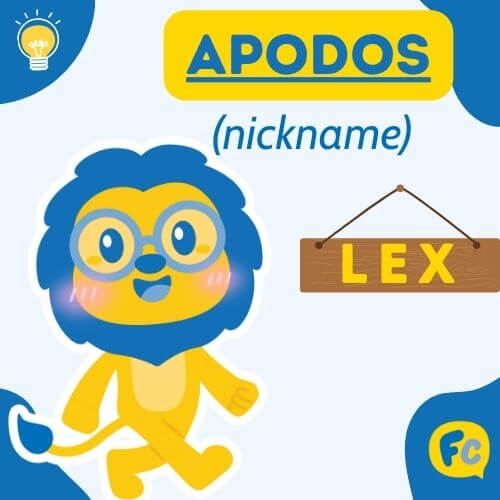
👉 Whether you are looking for the right affectionate term for a love interest or for a close friend or family member, here are some of the most commonly used nicknames in Spain.
Amor or Mi amor (Love or My love), conveys love or a deep affection and care for someone.
Cariño (Sweetheart, Darling), Cariño mío (My darling), or shortened to Cari, are widely used terms of endearment, whether with a special someone, a close friend, or a family member. It is affectionate and warm.
Mi vida or Vida mía (My life), is an affectionate way of letting someone know they are everything to you.
Corazón or Mi corazón (literally translates to ‘Heart’ or ‘My heart’) is used to convey fondness, care and closeness.
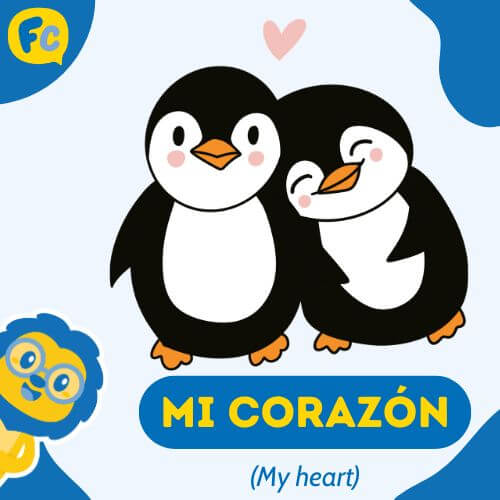
Cielo (literally means ‘Sky’ or ‘Heaven’), calling someone your sky would be equal to saying that they are your everything and your happy place.
Princesa/Príncipe (Princess/Prince), although frequently used as a term of endearment between friends and family to express how special someone is, it can also be used in a romantic setting.
Reina/Rey (Queen/King) is used frequently in romantic or familial contexts as an affectionate way of expressing the significance of someone to you. In a way, it’s like letting someone know that you are elevating their status in your eyes.
Tesoro (literally translates to ‘Treasure’), akin to calling someone ‘precious’, is an affectionate way of letting someone know that they mean the world to you.
Querido/a (Dear or Beloved), although this term of endearment can come across as more cordial, is commonly used as well to refer to someone in a caring or loving manner.
Gordo/Gorda (literally translates to ‘Fat’), this counterintuitive term of endearment is actually a warm and affectionate way to playfully address a loved one, irrespective of their actual body size.
Flaca/Flaco (literally translates to ‘Skinny’) is used equally as an affectionate and playful term of endearment, without necessarily referencing someone’s physique.
Bombón in Spanish is actually a type of chocolate candy, so think in terms of eye candy. This nickname is used as an affectionate or flirtatious way to refer to someone as ‘gorgeous’ or a ‘stunner’.
Churri, although it has no direct translation to English, is a widely used term of endearment. Churri is a playful nickname, used in romantic contexts, as a more casual and fun way to express affection towards another, akin to colloquially calling someone ‘babe’, ‘sweetheart’, or ‘love’.
Cosa/Cosita (literally means ‘thing’ or ‘little thing’) is a very affectionate and playful way to call someone cute, adorable, or lovable and applies to pets as well! It’s a sweet and tender way to express your affection or love towards someone.
| spanish | english |
|---|---|
| Amor or Mi amor | Love or My love |
| Cariño or Cariño mío | Sweetheart or My darling |
| Mi vida or Vida mía | My life |
| Corazón or Mi corazón | Heart or My heart |
| Cielo | Sky or Heaven |
| Princesa/Príncipe | Princess/Prince |
| Reina/Rey | Queen/King |
| Tesoro | Treasure |
| Querido/a | Dear or Beloved |
| Gordo/Gorda | Fat (playful term of endearment) |
| Flaca/Flaco | Skinny (affectionate term) |
| Bombón | Gorgeous or Stunner |
| Churri | Babe or Sweetheart |
| Cosa/Cosita | Thing or Little thing |
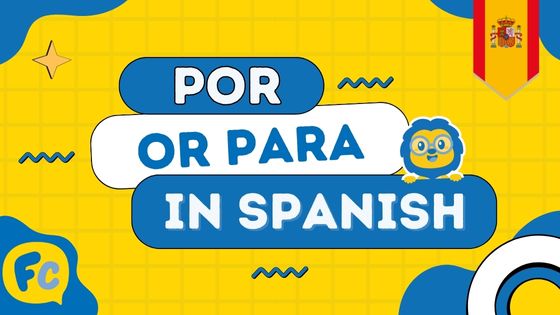
Is It Por or Para in Spanish? Two Distinct Yet Similar Spanish Prepositions
Why Por or Para Aren’t Just the English Equivalent of “For” Por and para are Spanish prepositions generally translated into English as “for”. However, this is a very limiting translation, as there is a far more extensive and correct usage…
Friend Zone Safe Nicknames
Now let’s take a look at a variety of cute and funny Spanish nicknames, perfect for expressing friendship while keeping it securely in the friend zone!
Find the ideal term to strengthen your bond in a lighthearted way!⬇️
Trasto (in the literal sense refers to an old or discarded object) is an affectionate and humorous way to refer to someone mischievous in a playful way with no ill intentions. Think of Denice de Menace or Calvin, from Calvin & Hobbes.
Guapo/Guapa (Handsome/Beautiful) is used very liberally in Spain and although it may seem to reference one’s physical attributes, often it is used as a warmer and more caring way of addressing or greeting friends or peers, without it necessarily alluding to their physical appearance.
Loca/loco (literally means someone crazy) is used to affectionately and playfully refer to someone who has an eccentric personality or is a bit more on the wild or unpredictable side.
Chato/chata, one of the meanings of the word chato or chata refers to someone with a small and flat nose but when used as a nickname has evolved into an affectionate and lighthearted way to address someone close.
Bicho (literally Bug or Insect) is an affectionate nickname used to refer to someone who is playfully mischievous or cheeky and likes to stir things up.
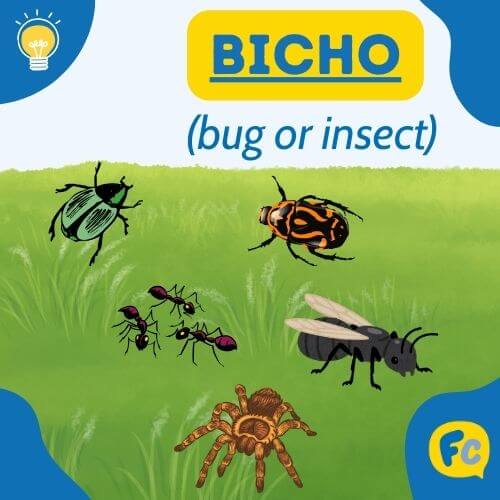
Pulga (literally means ‘flea’) is a fun nickname used to refer to someone who, although petite, is bursting with energy and is always up and about.
Pequeño/a (Small) or shortened to peque, is an endearing way to refer to someone smaller or younger than you. It is often used in friendly or familial contexts when one references someone significantly younger, like for example a teacher calling her kindergarten students Los peques (The little ones).
Mi niña/o (My girl/My boy), is a frequently used term of endearment in romantic, familial, and friendly contexts. It conveys a sense of warmth, affection, and closeness towards the person.
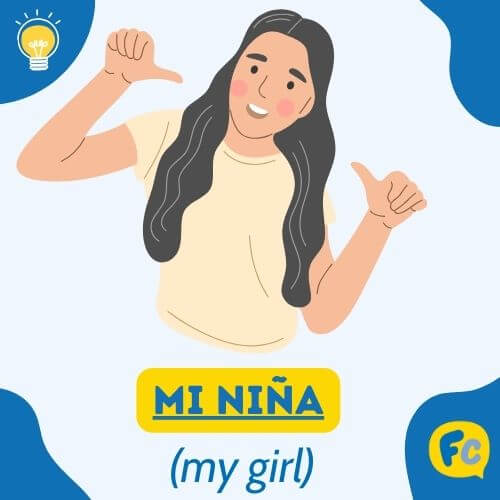
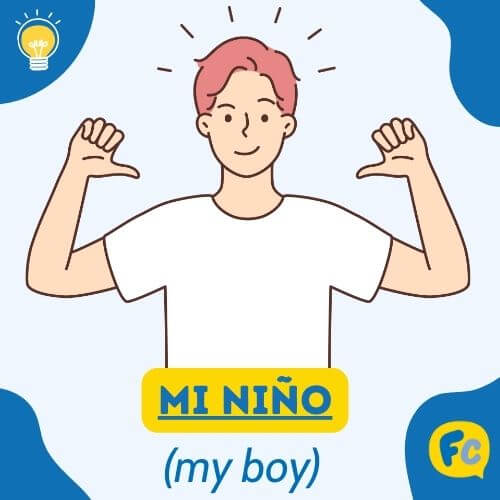
Jefe/Jefa (Boss), used in casual contexts as a teasing nickname when referring to someone who’s in charge, not just in the literal sense, but also alluding to someone who calls the shots, akin to calling someone ‘chief’ in English.
| spanish | english |
|---|---|
| Trasto | Mischievous one (playful term) |
| Guapo/Guapa | Handsome/Beautiful (affectionate greeting) |
| Loca/Loco | Crazy (playful term for eccentricity) |
| Chato/Chata | Small/Flat-nosed (affectionate nickname) |
| Bicho | Bug or Insect (playfully mischievous) |
| Pulga | Flea (energetic and lively person) |
| Pequeño/a or Peque | Small (endearing term for younger/smaller) |
| Mi niña/o | My girl/My boy (warm term of endearment) |
| Jefe/Jefa | Boss (teasing nickname for someone in charge) |
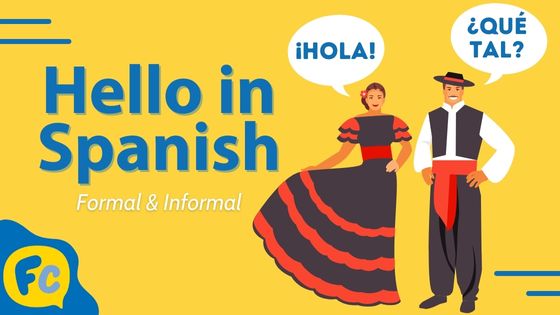
8 Ways to Say Hi in Spanish – Say Hello Like a Local
Different Ways of Saying Hi in Spanish, Fit for Each Occasion! There are many ways to say hello in Spanish, based on several factors… Is it a formal or an informal occasion? Are you close friends or have you just…
Now that you’ve mastered Spanish nicknames, why not learn even more Spanish essentials?
👉Reflexive Pronouns in Spanish
Cute and Funny Spanish Nicknames || FAQs
What are some Spanish nicknames for friends?
Here is a list of some of the most frequently used friendzone safe nicknames in Spain (regional variations aside):
Trasto (in the literal sense refers to an old or discarded object) is an affectionate and humorous way to refer to someone mischievous in a playful way with no ill intentions.
Guapo/Guapa (Handsome/Beautiful), is used very liberally in Spain as a warmer and more caring way of addressing or greeting friends or peers, without it necessarily referencing their physical appearance.
Chato/chata, one of the meanings of the word chato or chata refers to someone with a small and flat nose but when referenced as a nickname has evolved to be used as an affectionate and lighthearted way to address someone close.
Bicho (literally Bug or Insect) is an affectionate nickname used to refer to someone who is playfully mischievous or cheeky and likes to stir things up.
Mi niña/o (My girl/My boy) is a frequently used term of endearment in romantic, familial, and friendly contexts. It conveys a sense of warmth, affection, and closeness towards the person.
Tío/Tía is Spanish slang for ‘man’ or ‘dude’ and is normally used in casual contexts as a colloquial and laidback way of addressing a friend.
What are some Spanish romantic nicknames?
These are some of the most widely used Spanish romantic nicknames (regional variations aside):
Amor or Mi amor(Love or My love), conveys love or a deep affection and care for someone.
Cariño (Sweetheart, Darling), Cariño mío (My darling), or shortened to Cari are widely used terms of endearment. It is affectionate and warm.
Mi vida or Vida mía (My life) is an affectionate way of letting someone know they are everything to you.
Corazón or Mi corazón (literally translates to ‘Heart’ or ‘My heart’) is used to convey fondness, care and closeness.
Cielo (literally means ‘Sky’ or ‘Heaven’), calling someone your sky would be equal to saying that they are your everything and your happy place.
What does peque mean in Spanish?
Peque is short for Pequeño/a (Small) and is an endearing way to refer to someone smaller or younger than you. It is often used in friendly or familial contexts when one references someone significantly younger, like for example a teacher calling her kindergarten students Los peques (The little ones).
What does churri mean in Spanish slang?
Although the word churri in Spanish has no direct translation to English, know that it is used as a term of endearment. Churri is a playful nickname, widely used in romantic contexts, as a more casual and fun way to express affection towards another, akin to colloquially calling someone ‘babe’, ‘sweetheart’, or ‘love’.
What is the difference between mi amor and amor mío?
Although both phrases translate to ‘my love’ in English, there is actually a distinct nuance in their usage.
Mi amor is a term of endearment that expresses love and affection towards someone, many times in the more general sense of the word, so it applies to different contexts of use, whether romantic, familial, or with friends.
Conversely, amor mío, usually conveys a deeper sense of connection and intimacy, normally in the context of a love interest, as it has a possessive ring to it, expressing the significance of someone in your life.
Want More From LTL?
FANCY LEARNING SPANISH? Check out our online Spanish courses here.
We offer a 7-day free trial to all online students where you can study Spanish 24/7. It doesn’t end there either.
We teach over 10 of the world’s most popular languages 😎
Come and be a part of our amazing community.









